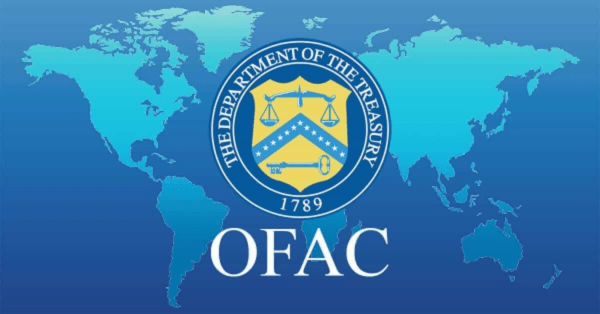
Compliance with OFAC Sanctions: What Every Business Should Know
The sanctions imposed by the Office of Foreign Assets Control (OFAC) of the US Department of the Treasury are one of the tools of international law aimed at preventing illegal activities related to terrorism financing, proliferation of weapons of mass destruction, and other threats to international security. These sanctions are not only applicable to American companies but also to international businesses with ties to the United States, making compliance critically important. Failure to comply with OFAC sanctions can lead to serious legal consequences, including substantial fines, restrictions on business operations, and even criminal charges. Let’s explore the key points related to OFAC sanctions and measures for compliance, as well as how OFAC sanctions lawyer can help you in such cases.
What are OFAC sanctions?
OFAC, or the Office of Foreign Assets Control, is a division of the US Department of the Treasury responsible for developing and implementing sanctions policy against foreign countries, organisations, and individuals. These sanctions can include freezing assets, prohibiting business dealings, and restrictions on financial transactions. Depending on the nature of the sanctions, they can be aimed at state entities, commercial structures, terrorist organisations, as well as individuals involved in illegal activities.
The primary objective of OFAC sanctions is to protect the national interests of the USA and international security by blocking access to financial and commercial resources for individuals and organisations that pose a threat. It’s important to note that OFAC sanctions have extraterritorial effects, meaning their requirements apply to all companies and individuals under US jurisdiction, including foreign organisations, if their activities are in any way connected with the United States.
Key compliance obligations
To ensure compliance with OFAC sanctions, every business must fulfil a number of obligations, including conducting due diligence on counterparties, adhering to reporting requirements, and obtaining the necessary licences and exemptions where required.
Due Diligence and Comprehensive Checks: A primary obligation of businesses is to vet all counterparties, clients, and partners for inclusion on OFAC sanction lists, such as the Specially Designated Nationals (SDN) List. This necessitates the implementation of software for transaction monitoring, as well as conducting thorough due diligence when entering into contracts and transactions. Companies must ensure they are not conducting business with individuals or organisations that are under sanctions, otherwise, they risk facing serious legal repercussions.
Reporting requirements: If a business deals with blocked assets or sanctioned individuals, it is required to notify OFAC and provide a report on all relevant transactions. Such reports must be submitted within 10 days of discovering the blocked assets or conducting the sanctioned operation. Failure to comply with these requirements may result in fines and other penalties.
Licensing and Exemptions: In some instances, despite the presence of sanctions, businesses may obtain special permission to conduct certain operations with sanctioned individuals or countries. These permissions are issued in the form of licences, which must be requested from OFAC before commencing the transaction. Licensing can pertain to humanitarian aid, medical supplies, as well as other exceptional circumstances that require special permission.
To avoid issues related to complying with OFAC sanctions, companies should hire profional lawyer, who provide OFAC SDN legal services. Conducting business with entities on this list could lead to serious legal and financial consequences, including significant fines and criminal prosecution.
Steps to Implement an Effective OFAC Compliance Programme
To successfully adhere to OFAC sanctions and minimise the risks of non-compliance, businesses must develop and implement a comprehensive compliance programme. This should include risk assessment, the development of internal policies and procedures, as well as ongoing monitoring and auditing.
- Risk Assessment: The first step towards compliance with OFAC sanctions is a comprehensive risk assessment related to the company’s activities. This includes analysing the geographical location of the business, industry specifics, the nature of counterparties, and business operations. Companies must identify potential risk areas where the likelihood of breaching sanctions is highest and take steps to mitigate these risks. An example of this could be vetting suppliers and partners for compliance with sanction policy requirements and excluding those who do not meet these criteria from the list of counterparties.
- Development of Internal Policies and Procedures: Following a risk assessment, a company must develop and implement internal policies and procedures aimed at ensuring compliance with OFAC sanctions. These documents should cover all aspects of the company’s operations, including the process for vetting counterparties, monitoring transactions, reporting, and staff training. It is crucial that these policies are understandable and accessible to all company employees, and their adherence is monitored at all management levels. For instance, companies might create a comprehensive due diligence guide outlining the steps to be taken when entering into a new contract or conducting a transaction.
- Continuous Monitoring and Audit: Companies must regularly monitor their operations and conduct compliance programme audits to ensure their effectiveness. This includes updating sanction lists, vetting new counterparties, analysing transactions conducted, and regular checks for adherence to internal policies. It’s crucial that monitoring is an ongoing process, with any deviations from OFAC sanction compliance standards being promptly identified and rectified. For instance, companies can utilise automated systems for transaction monitoring, which can help swiftly identify suspicious activities and prevent potential violations.
Consequences of non-compliance
Failing to comply with OFAC sanctions can lead to serious consequences for businesses. Specifically, a company might face both administrative and criminal penalties, including substantial fines, a prohibition on conducting business with American companies, and the freezing of assets. In certain instances, breaching sanctions could result in criminal prosecution, potentially leading to imprisonment for company executives.
The Office of Foreign Assets Control (OFAC) has extensive powers to investigate violations and impose sanctions on offenders. For instance, there have been cases where companies were fined millions of dollars for conducting transactions with individuals on sanctions lists or for failing to report blocked assets. Additionally, the reputational risks associated with non-compliance with sanctions can have a significant impact on a company’s business reputation, leading to a loss of trust from partners and clients.
How can an OFAC sanctions lawyer help you?
In the context of heightened requirements for compliance with OFAC sanctions, companies are increasingly seeking assistance from lawyers specialising in sanctions law. An OFAC sanctions lawyer can assist businesses in developing and implementing an effective compliance programme, as well as providing legal defence in the event of an investigation or charges being brought by OFAC.
In the event of issues arising related to OFAC sanctions, we recommend consulting our solicitors. Our team of experienced solicitors will provide you with advice on all aspects of compliance with sanction policies, including risk assessment, development of internal policies, conducting audits and monitoring. Our solicitors will assist in preparing reports and applications for licences. Should there be an investigation or legal proceedings, you can count on qualified legal defence of your company’s interests.













































